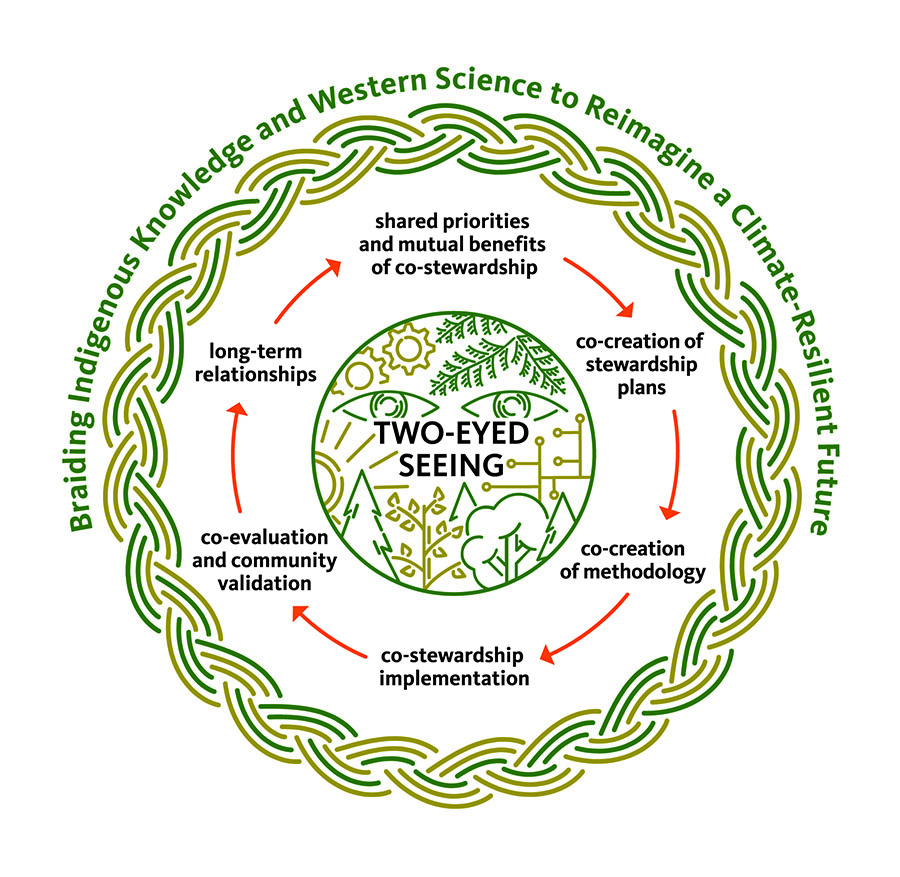What is TEK?
Traditional Ecological Knowledge (TEK)
TEK (also known as Indigenous Local Knowledge—ILK, and Indigenous Traditional Knowledge, ITK) is defined as knowledge and practices passed from generation to generation informed by cultural memories, sensitivity to change, and values that include reciprocity. TEK observations are qualitative and long-term, often made by persons who hunt, fish, and gather for subsistence. Most importantly, TEK is inseparable from a culture’s spiritual and social fabric, offering irreplaceable ecocultural knowledge that can be thousands of years old and incorporates values, such as kinship with nature and reciprocity, that can help restore ecosystems.
TEK includes stewardship practices that can be adapted by Tribal Nations for today’s world. TEK place-based land-care practices include using prescribed burning to modify vegetation, such as camas (Camasia quamash), conserving culturally important species, such as beaver (Castor canadensis), plains bison (Bison bison bison), wolves (Canis lupus) and salmon (Oncorhynchus sp.), and adjusting timber use to create more sustainable communities of traditional plants that provide wildlife habitat, and in turn, food and medicines for humans. These actions increase biodiversity and ecological resiliency by creating fine-grained landscape mosaics that function within an ecosystem’s range of natural variability.
TEK is about change and adapting to that change gracefully and with intentionality. It is the original form of systems thinking, focusing on sustainability and living rightly on the Earth. Intrinsic to TEK is the Indigenous world view that humans are part of nature. Rooted in spiritual health, culture, and language, TEK is a lifeway. Today, TEK and Western science can come together respectfully and synergistically to provide a pathway to sustainability and resiliency of humans and nature.

